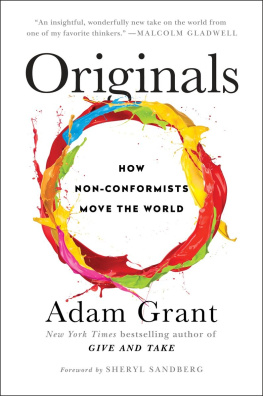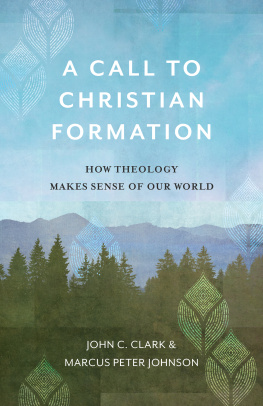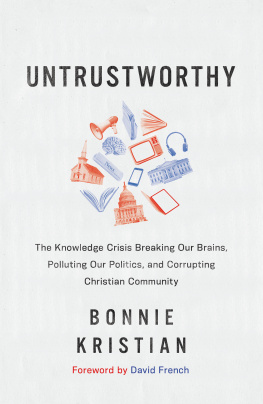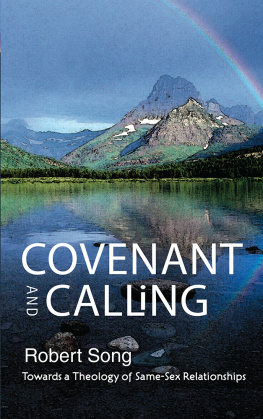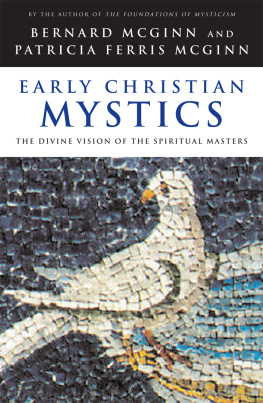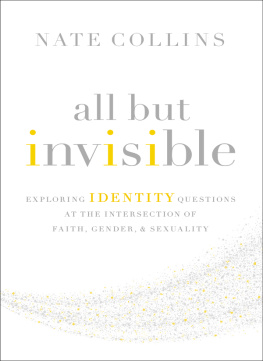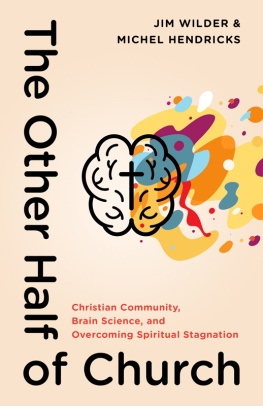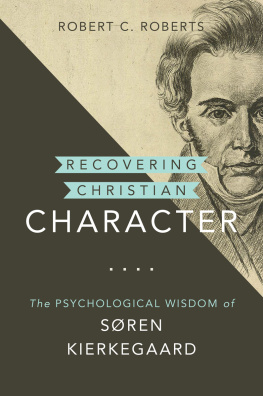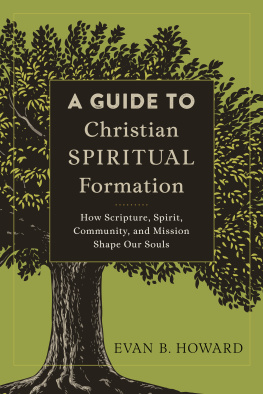
2015 by Jonathan Grant
Published by Brazos Press
a division of Baker Publishing Group
P.O. Box 6287, Grand Rapids, MI 49516-6287
www . brazospress .com
Ebook edition created 2015
All rights reserved. No part of this publication may be reproduced, stored in a retrieval system, or transmitted in any form or by any meansfor example, electronic, photocopy, recordingwithout the prior written permission of the publisher. The only exception is brief quotations in printed reviews.
Library of Congress Cataloging-in-Publication Data is on file at the Library of Congress, Washington, DC.
ISBN 978-1-4412-2716-4
Unless indicated otherwise, Scripture quotations are from the Holy Bible, New International Version. NIV. Copyright 1973, 1978, 1984, 2011 by Biblica, Inc. Used by permission of Zondervan. All rights reserved worldwide. www.zondervan.com
Scripture quotations labeled KJV are from the King James Version of the Bible.
Scripture quotations labeled NRSV are from the New Revised Standard Version of the Bible, copyright 1989, by the Division of Christian Education of the National Council of the Churches of Christ in the United States of America. Used by permission. All rights reserved.
For Esther
Contents
Cover
Title Page
Copyright Page
Dedication
Foreword by James K. A. Smith
Acknowledgments
1. Adjusting Our Vision: Christian Formation and Relationships in a Sexualized Age
Part 1: Mapping the Modern Sexual Imaginary
2. Seeking the Truth Within: Love, Sex, and Relationships within the Culture of Authenticity
3. Three Paths to Freedom on the Road to Nowhere: The Dead End of Modern Liberty
4. We Are What We Acquire: Consumerism as a Corrupting Dynamic
5. The Hypersexual Self: Sex and Relationships as Happiness Technologies
6. Churches without Steeples: The Loss of Transcendence and the Atomistic Worldview
Part 2: Charting a New Course for Christian Formation
7. Searching for Truth That Transforms: Introducing a Christian Social Imaginary
8. Seeing the Good Life and Becoming What We See: The Role of Vision within Sexual Formation
10. Living the Gospel Story: Narrative Discipleship within the Narrative Community
11. Becoming What We Do: The Formative Power of Practices
Epilogue: Melodies of Heaven
Select Bibliography
Index
Back Cover
Foreword
J AMES K. A. S MITH
When you write a book on desire, people expect you to talk about sex. When you talk about agape as rightly ordered eros and describe human beings as erotic creatures, the temperature in the room clicks up a couple of degrees, and people are waiting for a libidinous turn in the conversation.
But Im the last person who should be writing about sex. Indeed, in that respect, I am a complete square, an alien from another age. I was married when I was nineteen years old and have had sex with exactly one personthe lovely woman who has been my wife for twenty-five years. While I can recall pages of dirty magazines floating around the locker room, my formative years were not haunted by the ubiquity of pornography we know today. I attended a Bible college where women were allowed into the mens dorm rooms for exactly two hours per semester , under close surveillance. So the worlds of Sex in the City or Lena Dunhams Girls are pretty much unimaginable to me.
Still, I have four children (which I hope is some proof that I like sex!) and have a deep awareness that they have grown up in a foreign country. While we have open lines of communication and we talk about both the gifts and guardrails of healthy sexuality from a biblical perspective, I sometimes fear that their mother and I must sound like those parents in Charlie Brown movies: a kind of droning Wah wah wah wah waaaah that, however well intentioned, is a language that makes no sense to younger Christians in the twenty-first century. This isnt because the transcendent norms of biblical discipleship are pass but rather because the world in and from which our children hear them has radically changed. This doesnt mean we need to revise or reformulate a biblical understanding of sex, but it does mean we need to recontextualize it so that it can be heard anew for what it is: an enduring gift for human flourishing.
This is why Im so grateful that Jonathan Grant has written Divine Sex . He displaces the reductionistic way traditional Christian morality is usually articulated: as though sufficient knowledge coupled with (Herculean!) willpower are all we need. This kind of thinking-thing-ism tends to forget that, in discussions of sex, there are other organs beyond the brain that might be, shall we say, relevant to the discussion. Our sexual lives dont just play out in rational, deliberate choices we make, as though sex is the conclusion to some syllogism. Our sexual lives are ways of life we live into because our hearts and minds have been captivated by a picture of the so-called good life. As Grant rightly emphasizesresonating with my argument in both Desiring the Kingdom and Imagining the Kingdom our sexual being-in-the-world is affected by the formation of our imagination. We are creatures of habits, and such habits are formed in us by the rhythms and rituals we are immersed in, even (indeed, even more so) if we dont realize it. Our loves and longings and desiresincluding our sexual longingsare not just biological instincts; they are learned. But the pedagogies of desire that train us rarely look like lectures or sermons. We learn to love on the register of the imagination.
Grant sympathetically recognizes the ways in which Christians are embedded in cultural patterns that shape us without our realizing it. We have to appreciate, he rightly points out, the extent to which the modern self, with its focus on being free in the negative sense of being free from other people, has seeped into the Christian imagination and distorted our vision of sexuality and relationships. Or as he puts it a little later, The red thread running throughout this book is the conviction that we are, more than we realize, made by our context. This is why the first half of Divine Sex is focused on a diagnosis of the cultural milieu that forms and shapes our imaginationincluding how we imagine sex in ways we might never articulate. And Grants analysis is stellar: it is pointed and honest without being alarmist and despairing. Drawing on (and lucidly translating) the important work of scholars and social scientists like Charles Taylor, Christian Smith, and Mark Regnerus, as well as engaging some of my own work, Grant helps us understand how and why the world that forms us has changedand hence what effective Christian counter formation would look like. The diagnosis of our cultural condition is not then taken as license for revision of biblical norms; instead, it provides the impetus for a fresh articulation of why those norms could be received as liberating us from the enslavement that parades itself as sexual freedom today.
The result is pastoral theology as ethnography, written from the front lines of our secular age and growing out of ministry in London and elsewhere. Grant isnt writing from some protected enclave where traditional plausibility structures are alive and well. No, this book is written from the trenches of ministry in some of our most pluralisticand hedonisticglobal cities. Its voice is at once theological and pastoral: a brilliant work of cultural analysis that seems to always keep embodied names and faces in view. (I also have to admit that I am jealous of Grants uncanny facility with metaphor, simile, and the word pictures that paint his argument. As my Pentecostal sisters and brothers like to say, This stuff will preach !)






